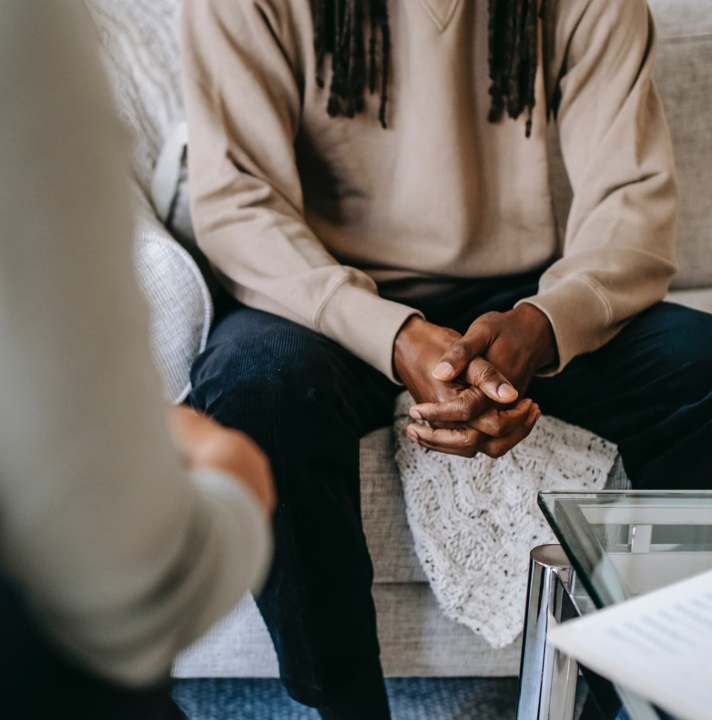Psychosocial Treatment (also known as behavioral treatment)
This is the primary form of treatment available in most substance use treatment facilities in the U.S. It can involve any combination of individual, couples, family, or group therapy. The most commonly available types of psychosocial treatments include Cognitive Behavioral Therapy, Motivational Interviewing, Relapse Prevention, and Contingency Management.
Each of these forms of psychosocial treatment have varying degrees of efficacy and evidence supporting their use. Unfortunately, the consistent use of evidence-based treatments remains a challenge in the U.S. and few facilities provide multiple therapy options for clients to choose from.
Medications for Opioid Use Disorder (MOUD)
Medications for opioid use disorder (MOUD), also known as medication assisted therapies (MAT), have proven to be the most effective forms of treatment for opioid use disorder. There are 3 medications approved by the Food and Drug Administration (FDA) to treat opioid use disorder. These are methadone, buprenorphine (e.g., Suboxone), and naltrexone (e.g., Vivitrol).
- Methadone is seen as the “gold standard” treatment for opioid use disorder. Research has shown for decades that it helps people to cut down on street opioids. It also helps patients to gain stability in their lives so they can reach their goals. To obtain methadone in the U.S., patients must visit special clinics. Due to strict regulations, most patients are required to be observed while taking their doses there, on a daily or near-daily basis.
- Buprenorphine is a medication with similar benefits to methadone. Patients do not need to visit specially regulated clinics to obtain buprenorphine. However, until the recent passage of the MAT Act in Congress, medical professionals had to undergo additional training and get a special DEA waiver, commonly called the X-waiver, in order to prescribe buprenorphine. Research shows that patients who take methadone or buprenorphine are less likely to experience cravings and withdrawal and are less likely to overdose than people who do not take these medications for their opioid use disorder.
- The research on naltrexone is more mixed, but it can be helpful for some people who voluntarily choose this option.
The Drug Policy Alliance (DPA) is committed to allowing client choice for any of the three forms of MOUD for opioid use disorder in all treatment settings. Research suggests that these medications remain underutilized in the U.S.
Self-help Groups
These groups are free, available in the community or online, and are facilitated by fellow peers and people in recovery instead of trained or credentialed professionals. The oldest and most well-known self-help groups are Alcoholics Anonymous (AA) and Narcotics Anonymous (NA), with chapters across the U.S. and around the world.
Research suggests that self-help groups can be helpful for some individuals with substance use disorder. More research is needed to understand what aspects of self-help are most beneficial and for whom. Self-help groups should not be mistaken for treatment.
DPA believes that people should be able to choose the self-help groups that align with their own personal recovery goals and personal preferences. We do not endorse any single self-help group over others, and we do not believe that attendance at any self-help group should be mandated or coerced by a treatment facility, the justice system, employers, or other entities.
Why Don’t Most People Receive Treatment for Substance Use Disorders?
The majority of people with substance use disorders do not seek treatment, and many can overcome any negative consequences of drug use without treatment. However, far too many people who desire treatment often face challenges that stop them from accessing the services they want. The more barriers people face, the less likely they are to access services.
Some of the most common obstacles are:
- Cost: Treatment is not affordable or fully covered by health insurance. Other times, what is covered is inaccessible due to insurance requirements and limitations.
- Few providers: In many parts of the country, especially rural communities, there are too few providers nearby and long waitlists at existing providers. This can also include long distances to travel for treatment. This can be challenging for those without reliable transportation and busy schedules.
- Programmatic issues: Many treatment providers have strict attendance requirements or limited treatment hours. This can be challenging for people who work or have family/caretaking responsibilities. Treatment may not be attractive to potential clients due to imposing restrictions on drug use like abstinence-only programs, visitation, and limited access to other services or MAT.
- One-Size-Fits-All Approach: Treatment may not be tailored to the specific needs or preferences of individuals. This includes their personal treatment and recovery goals. It can also include the needs of special populations including those with co-occurring mental health diagnoses, racial or ethnic minorities, or gender or sexual minorities.
- Stigma: The taboo associated with substance use often makes it difficult for people to seek help for fear of getting in trouble or being judged.
Even when treatment is accessible, it is often not evidence-based, provided by highly-trained professionals, or subject to adequate oversight. Client engagement is correspondingly low and drop-out rates are high.

